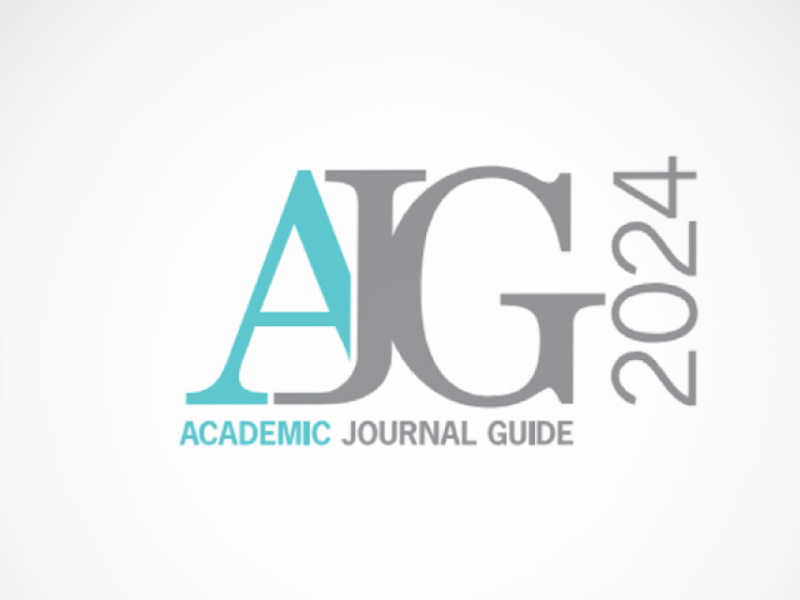The purpose of the Academic Journal Guide
The purpose of the AJG is to support academics and Deans in the navigation of the research environment and its complexity, through the provision of robust evidence informed information and data. It provides details on a wide range of journals, stretching across fields that are either central or salient to business and management studies where academics may seek to publish their research.
The 2024 AJG provides both journal ratings and new contextual metrics to provide a wider range of data to aid academics, research groups and business schools to articulate their research goals.
The 2024 edition is an intermediate review incorporating new journals as well as journals where there have been significant shifts in metrics, or a significant development or change in the nature of the journal.
The AJG’s ratings are based upon peer review, editorial and expert judgements following the evaluation of many hundreds of publications and is informed by statistical information relating to citation.
The contextual metrics are aligned to the UN Sustainable Development Goals, citations to policy documents, collaborations between academics and non-academic stakeholders, the extent of international co-authorship, and the gender composition of editorial boards. This data was provided courtesy of Elsevier from their SciVal research performance analytics platform.
We advise that users read the AJG's Methodology to understand the aims of the 2024 edition and how journal ratings are judged.

View the Academic Journal Guide 2024
Our guiding principles on how to use the AJG
As the name suggests, the AJG is a ‘guide’. It should not be used as a ‘one stop shop’ to decide where to publish nor to evaluate individuals’ research outputs. The AJG should be used responsibly, in line with the principles of best practice in the assessment of scholarly research as outlined by the San Francisco Declaration on Research Assessment (DORA) and the Leiden Manifesto.
No single evaluation approach applies to all contexts. We advise that users of the Guide should also seek advice and recommendations from peers and the academic community more generally.
Although the best work is often clustered in a limited number of leading journals, good work may be encountered in a wide range of different places; this highlights the merit of reading work.
Consider the relevance and quality of journals not listed in the Guide, including new journals, but be aware of predatory outlets.
It is important that users of the AJG understand the methodology. By reading the methodology you will understand how a journal rating came about, and how the AJG’s metrics are derived.
The AJG seeks to encourage good practices in journal publishing. As well as considering a journal’s rating and relevance, consider other factors such as the composition and diversity of its editorial board, its policies in relation to open access, its fee charging practices, or its acceptance rates.


